Have you ever searched for your name on Google and found information you wish wasn’t there? Maybe an old address or a past job position. Now, there’s a way to manage what’s visible in Google search results. It’s called “Results About You.”
In this article, we’ll cover what “Results About You” is, how to access it, the types of content that can be removed, and why this matters. We’ll also explain how to de-index information and when to contact a service like NewReputation for extra help.
What Is “Results About You”?
Google’s “Results About You” is a tool that allows you to request the removal of personal information from search results. This includes details like phone numbers, home addresses, and email addresses. If this data shows up in search results and makes you uncomfortable, you can take action to hide it.
Removing information from Google search results doesn’t delete it entirely from the internet. It only stops that information from appearing in Google searches. The data may still exist on the original website.
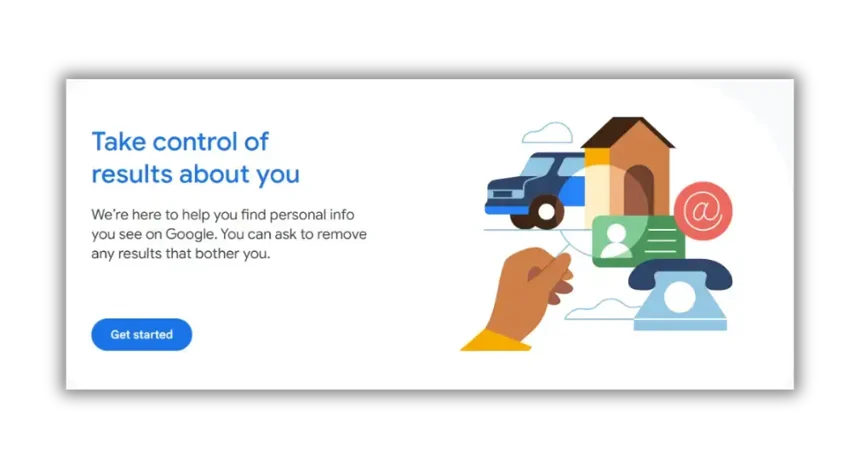
Types of Content Google “Results About You” May Remove
Knowing what can be removed is important. Not all information is eligible. Here’s what might qualify:
Personal Information:
- Phone numbers
- Home addresses
- Email addresses
Sensitive Information:
- Social Security numbers
- Bank or credit card details
- ID images
- Medical records
Content That Poses a Risk:
- Data that could lead to identity theft.
- Information that could cause financial harm.
Non-Consensual Content:
- If explicit content was shared without your consent, you can request removal.
Some data, like court records or news articles, may remain visible even if you ask for it to be removed.
How to Access “Results About You”
Ready to use this tool? Here’s how:
- Sign in to your Google account.
- Go to the “Results About You” page. You may find this shortcut in your Google profile settings.
- Click “Get Started” and follow Google’s instructions to fill out what information you want to remove.
- Set up notifications to get email alerts if your information appears online.
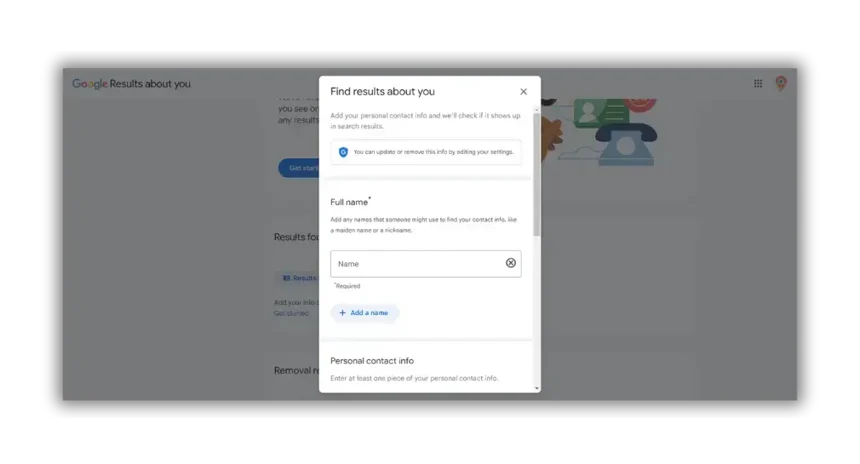
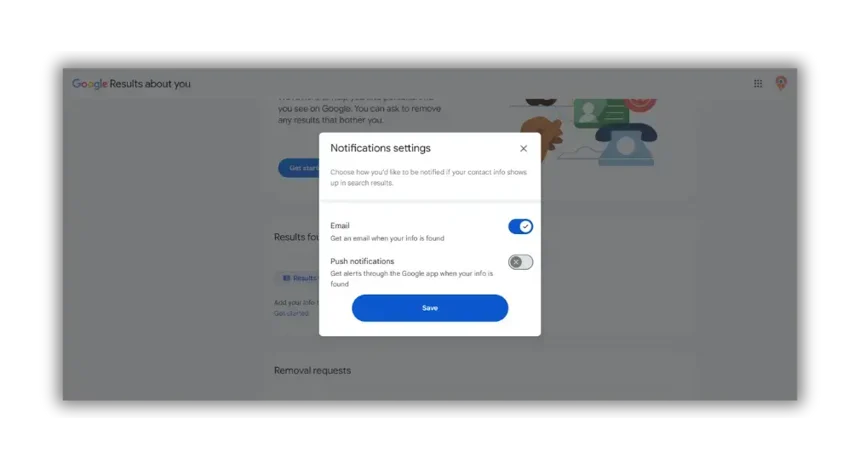
You can also remove specific search results:
- Click the three dots in the top right of a search result.
- Choose “Remove Result.”
- Select “It Shows My Personal Contact Infomation.”
- Complete the form and submit it.
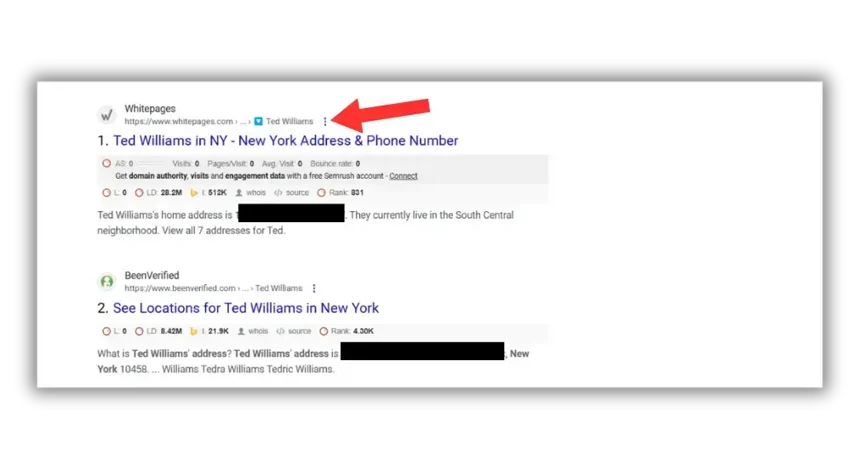
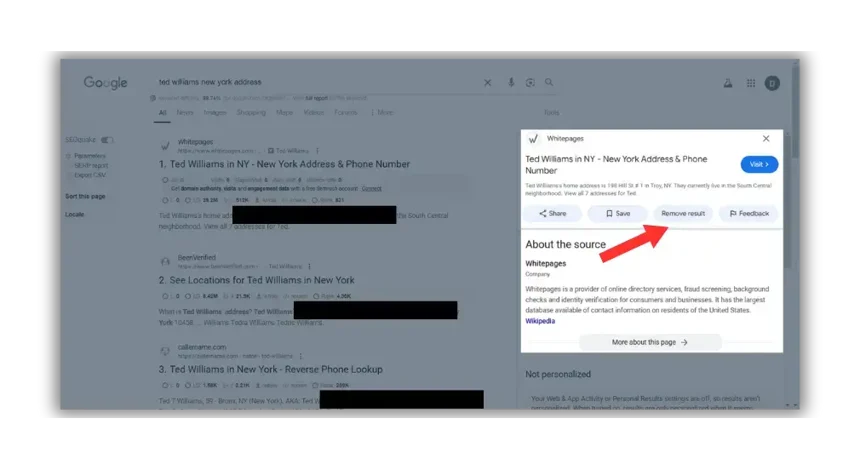
Google will review your request and let you know the outcome.
What Happens Next?
Once you’ve made your request, Google will review it. Support may ask for additional details to verify your claim. Approval isn’t guaranteed, but you’ll get an update when a decision is made.
De-Indexing Information: What It Means
You may wonder, “Does this mean my data is deleted?” The answer is no. When Google removes search results, it de-indexes the information. This means it’s no longer visible in search results, but the data remains on the original website. To remove the information from the source, you need to contact the website owner and request removal.
How to De-Index Google’s Information About You
When something is de-indexed, it means it won’t show up in search engine results, like Google. If your request to de-index information is approved, it won’t appear when people search for it. However, the content still exists on the original website.
For example, if an old article with your phone number is de-indexed, it won’t come up in Google searches for your name. However, the article is still there and can be accessed by visiting the website directly.
Using Google Alerts
Proactive monitoring is smart. Google Alerts is a free tool. It can notify you when your name appears online. This feature is underused. It’s a game-changer for managing your reputation.
- Set Up Alerts for Your Name. Customize your settings to receive updates as soon as something new is posted.
- Review Alerts Regularly. This way, you’ll know about new mentions and can act quickly.
Being aware of what’s out there helps you stay in control.
Need Help? Contact NewReputation.com
Managing your online presence can be a challenge, but NewReputation is here to help. We can remove or hide unwanted search results and protect your privacy. Our experts know how to clean up your digital footprint.
Reach out to us if:
- You can’t remove sensitive information on your own
- Your request to Google was denied
- You need a long-term plan to keep your online reputation safe
Final Thoughts
“Google Results About You” is a helpful tool for protecting your online privacy. It also has limitations.
Be smart about using it: understand what can and can’t be removed. If full removal isn’t an option, consider de-indexing. Keep an eye on your presence by setting up alerts and staying updated.
Whether you handle it yourself or seek professional help, take steps to protect your privacy. Visit NewReputation.com for more support and guidance.




